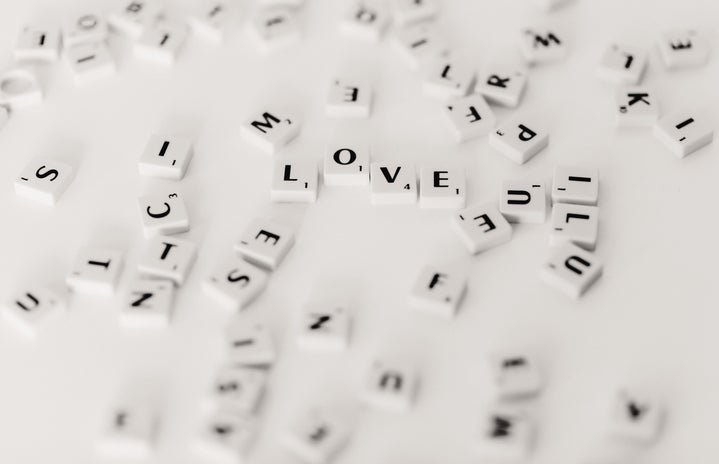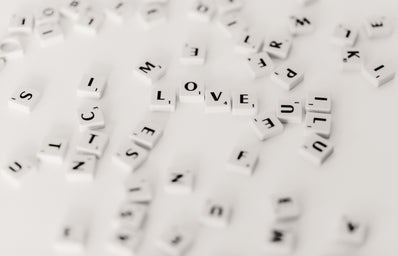It seems like a successful open relationship is like a unicorn – you have heard about their existence but have never actually seen a real one, as the horses you mistake for the mythical creature are just really good at pretending.
This metaphor is actually much better than I am letting on. Here is the definition of a unicorn from the highly reliable source, Fantastic Beasts and Where to Find Them from the Hogwarts library, which has been slightly adapted to fit the description of this other fabled being:
Successful Open Relationship: The [successful open relationship] is a beautiful [enigma] found throughout the [colleges] of northern [America]. It is pure [emotionless sex], [complicated] when fully grown, though the [agreements between the two people] are initially golden, and turn [jealous] before achieving maturity. The [sex lives of the two involved] all have highly magical properties. It generally [thrives on] human contact, is more likely to allow a [college guy] to approach it than a [college girl], and is so [fraught with jealousy, complications, and silent contempt] it is very difficult to capture.
Where am I going with this? Besides working a Harry Potter reference into a completely unrelated context, I am attempting to illustrate how seemingly impossible a successful open relationship is for the average love-torn college student. It is almost inevitable that one way or another, someone will get hurt, and the relationship will fail only a few months later than it otherwise would have if a break-up had initially been suggested instead of an open relationship.
An open relationship, as defined by college students across America, is an agreement between a couple who has decided certain sexual needs can be indulged through another person because they are unsatisfied with the monotony of monogamy. In most instances, an open relationship is the result of a long-distance couple (usually attending two different colleges) that has started to miss the benefits of physical companionship but does not want to break-up. Sometimes people agree to open the relationship in order to prevent future boredom and subsequent resentment.
Of course, not all open relationships involve a person at home and a person at school. For example, some senior couples decide that during the last week of college their exclusivity is lifted as a last chance to hook-up with all of the people in their class whom they have always secretly had a crush on. But the reason why a successful open relationship seems so difficult to achieve is because removing the emotional from the physical is an extremely hard process for many college students – thus, making its true existence similar to that of a unicorn. Meredyth Merrow, a rising senior at Gettysburg College, interprets the idea of an open relationship as having your cake and eating it too: “The entire idea of an open relationship is that you have the best of both worlds. You have the comfort of a boyfriend to sleep with when you are at home and the freedom to sleep around wherever else in the world you are. You have someone at home and you have someone at school; you want to be able to do the college thing and you want to have someone at home.”
Meredyth concluded, “If you care about someone enough to date them, you shouldn’t have sex with other people. It’s that easy. Being in an open relationship is like friends with benefits, there is no difference really… the fact that there is an option on Facebook for it is really disconcerting.”
Katey McCabe, a rising senior at Case Western Reserve, felt similarly: “If you need to sleep with other people, then clearly you are not mature enough to handle serious commitment.”
After surveying many different college students, both guys and girls, the majority concluded that open relationships are just not a good idea. A couple is either exclusive or simply friends with benefits – there is no in between, and when you label your relationship as “open” it is because you are too scared to permanently end your relationship and lose the sense of security that comes with it.
[pagebreak]
The Successful Open Relationship: Justifying the Unicorn’s Existence
However, there are exceptions to every rule. I will admit there is a flaw in my unicorn-metaphor: some (albeit extremely few) open relationships do work, and it is a definite possibility for people who have decided that monogamy just doesn’t make them happy. On a recent episode of House MD, a patient explained that she was in an open marriage because she and her husband realized that most people cheat anyway and it was better to be honest. It is also entirely possible to be emotionally and socially compatible with someone, such as liking the same music, the same conversation subjects, the same activities, but then not be sexually compatible – as in, you just don’t turn each other on.
Annika Yates, a rising senior at Mount Holyoke College, has a very progressive view of the open relationship: “I think it’s a good thing to embrace different standards of relationships because the idea of a relationship is constantly evolving.”
Annika explains, “some people think it’s just not natural to be in a strictly monogamous relationship, and others think it’s not natural to want something besides monogamy. But I don’t know if there is a “natural” when it comes to relationships. You can’t just write it off as wanting to have your cake and eat it too, because not everyone who has them wants meaningless hookups. Polygamy, things on the side, emotionally open relationships are all possible; if people know they aren’t interested in a monogamous relationship it makes sense to have an open relationship.”
“[But for one to work] you have to make everything explicitly clear through strong communication because boundaries are everything. It’s hard to have a successful open relationship, because it requires a whole lot of communication and no one is going to want to talk about it.”
The reason why a successful open relationship seems so rare is because oftentimes a couple has a hard time admitting that they are truly happy and communicating exactly how they feel to each other. For example, the same patient on House MD who had an open marriage ended up discovering that her husband has never slept with anyone else while she has had many different sexual partners.
Tackling the Open Relationship: Attempting to Capture the Unicorn
The thing about unicorns is that they make people curious and fascinated, and it seems the same is true about open relationships: some couples just can’t resist giving them a try. The best-case scenario is that both you and your boyfriend or girlfriend mutually decides it is time to open up the relationship. When both people are not on the same page it can seem like you are getting slapped in the face, much like the classic episode of 90210 when Kelly admits to Dylan she wants to sleep with other people but insists she isn’t breaking up with him.
Once the open relationship is firmly established, it is extremely important to emphasize communication and set boundaries (for example, saying it’s ok to hook-up with people at school but not with people from high school while home on breaks). It is also extremely important to emotionally prepare yourself for imagining your boyfriend with someone else and not getting jealous.
Hannah LaBove, a rising senior at Cornell University admits she has never seen one work successfully because “if you are in an open relationship it means your boyfriend will inevitably be with someone else, which no one is ever really comfortable with.”
In a “closed” relationship where no cheating occurs, you and your boyfriend get sexual gratification simultaneously. In an open relationship, it seems this simple symmetry is extremely rare. There is the inevitable comparison between the independent sexual activities of you and your partner, ranging anywhere from how far you went, to how emotionally invested you were at the moment of the hook-up, to how frequently he gets some and how infrequently you get some.
Here is a possible scenario: you both swap stories about weekend make outs and then resume cuddling while eating grilled cheeses and watching the latest LOST episode on TiVo. But something stirs in your mind: you imagine your boyfriend and his weekend girl talking for hours and bonding over favorite movie quotes and passionately kissing in the rain – whereas your bleak one-second-make-out to the cacophonous tones of Ke$ha was followed by the uncomfortable sensation of your guy spilling the rest of his Vodka-Redbull all over your dress. Are these situations the same, even though both of you never passed first base? Does it matter if they are not the same?
These are the types of situations you have to reconcile when you are in an open relationship, and it takes an extreme level of self-confidence and maturity to learn how to separate your emotions from your sex life. Let’s be honest: the “horses” that are really good at pretending they are “unicorns” are usually just couples that are pretending being in an open relationship is the best solution for their problems.
Sources:
Fantastic Beasts and Where to Find Them by Newt Scamander
Meredyth Merrow, rising senior at Gettysburg College
Katey McCabe, rising senior at Case Western Reserve University
Annika Yates, rising senior at Mount Holyoke College
Hannah LaBove, rising senior at Cornell University
Several anonymous American college students

